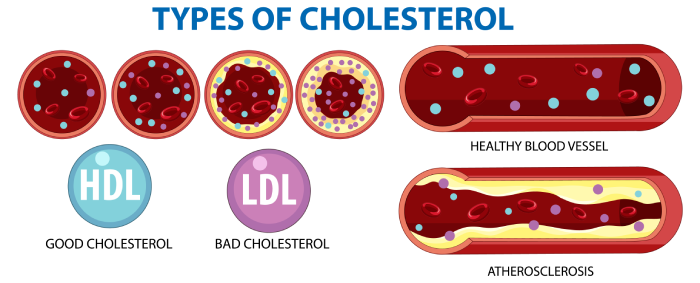What is Albendazole?
Albendazole is a broad-spectrum antiparasitic medication that has been widely used in both human and veterinary medicine for several decades. This medication belongs to the benzimidazole family of drugs and plays a crucial role in treating various parasitic infections that affect millions of people worldwide.
Chemical Composition and Properties
The active compound in Albendazole works by interfering with the parasites’ ability to maintain their cellular structure, ultimately leading to their elimination from the host body. The medication comes in various forms, with tablets being the most common, typically available in strengths of 200mg and 400mg. The standard albendazole 400 mg formulation is the most frequently prescribed dosage for adult treatments.
Historical Development
Since its introduction in the 1970s, Albendazole has become a cornerstone in parasitic infection treatment, earning its place on the World Health Organization’s List of Essential Medicines.
How Albendazole Works in the Body
Mechanism of Action
When prescribed Albendazole, patients often wonder about how the medication functions within their system. The drug works by binding to specific sites on the parasites’ cells, disrupting their ability to absorb glucose. This mechanism effectively starves the parasites, preventing them from maintaining their cellular structure and ultimately leading to their death.
Absorption and Distribution
The absorption of Albendazole in the body is significantly enhanced when taken with fatty meals, which is why healthcare providers often recommend taking the medication with food. This important detail helps optimize the treatment’s effectiveness and ensures better clinical outcomes.

Medical Uses and Applications
Common Parasitic Infections
Albendazole dosage varies depending on the type of infection being treated. The medication is particularly effective against various types of worms, including:
- Intestinal roundworms
- Hookworms
- Pinworms
- Whipworms
- Tapeworms
The albendazole dosage for adults typically follows standardized protocols based on the specific parasitic infection being treated. For most intestinal parasitic infections, healthcare providers prescribe albendazole tablet 400 mg dose for adults as a standard treatment.
Veterinary Applications
While primarily known for human use, albendazole for dogs and other animals is also common in veterinary medicine. However, it’s crucial to note that dosing for animals differs significantly from human applications, and pet owners should never attempt to administer human formulations to their pets without veterinary supervision.
Dosage Guidelines and Administration
Standard Dosage for Adults
The albendazole dose for adults varies based on the specific condition being treated. The most common albendazole single dose for adults is 400 mg taken as a one-time treatment for simple infections. However, some conditions may require extended treatment periods with different dosing schedules.
Healthcare providers carefully calculate the appropriate dosage based on several factors:
- The type of parasitic infection
- The severity of the infection
- The patient’s weight and overall health status
- Any potential drug interactions or contraindications
Pediatric Dosing Considerations
Special attention must be paid when treating children with antiparasitic medications. The dosage for pediatric patients is typically calculated based on their body weight and the specific condition being treated. Healthcare providers carefully adjust the standard adult dose to ensure safe and effective treatment for younger patients.
Treatment Duration
Treatment duration can range from a single dose to several days, depending on the infection type and severity. Healthcare professionals monitor the treatment progress and may adjust the duration as needed.
Comparing Treatment Options
Albendazole vs Mebendazole
When treating parasitic infections, healthcare providers often consider both medications as viable options. Each has its specific advantages:
Mebendazole:
- Particularly effective against pinworms and roundworms
- May require a longer treatment duration
- Often prescribed for single-organism infections
Albendazole:
- Broader spectrum of activity
- Generally requires shorter treatment duration
- Effective against multiple parasites simultaneously
Albendazole vs Fenbendazole
While both belong to the same drug family, these medications have different primary applications:
- Fenbendazole is predominantly used in veterinary medicine
- Human parasitic treatments typically favor other options
- Different safety profiles and regulatory approvals
Cost Considerations
Treatment costs can vary significantly depending on several factors:
- Geographic location
- Insurance coverage
- Generic availability
- Treatment duration required
Over-the-Counter Availability
Prescription Requirements
In many countries, these medications require a prescription from a licensed healthcare provider. This requirement ensures:
- Proper diagnosis before treatment
- Appropriate dosing for specific conditions
- Monitoring of potential side effects
- Prevention of antimicrobial resistance
Global Accessibility
Availability varies worldwide:
- Some regions offer over-the-counter access
- Others maintain strict prescription requirements
- Public health programs may provide free treatment in endemic areas
- Access through licensed pharmacies ensures medication quality
Safety and Precautions
Contraindications
Certain conditions may preclude the use of this medication:
- Pregnancy or suspected pregnancy
- Liver disease
- Known hypersensitivity to benzimidazole compounds
- Certain concurrent medications
Potential Side Effects
Common side effects are generally mild and may include:
- Temporary gastrointestinal discomfort
- Mild headaches
- Changes in liver enzyme levels
- Dizziness
More serious side effects, though rare, require immediate medical attention:
- Severe allergic reactions
- Significant liver function changes
- Bone marrow suppression
- Unusual neurological symptoms
Drug Interactions
Healthcare providers carefully consider potential interactions with:
- Other antiparasitic medications
- Certain antibiotics
- Medications metabolized by the liver
- Blood thinners
Treatment Success Factors
Proper Diagnosis
The success of antiparasitic treatment heavily depends on accurate diagnosis. Modern medical practices employ various diagnostic tools and techniques to identify specific parasitic infections before initiating treatment. Healthcare providers typically begin with a thorough patient history, followed by appropriate laboratory tests which may include stool examination, blood tests, or imaging studies. This comprehensive diagnostic approach helps determine not only the presence of parasites but also the severity of infection, which directly influences treatment decisions.
Monitoring Progress
Throughout the treatment period, healthcare providers carefully monitor patient response through various clinical and laboratory parameters. This monitoring process is crucial as it helps identify any necessary adjustments to the treatment plan while ensuring optimal therapeutic outcomes. Patients may need to undergo follow-up testing to confirm the complete elimination of parasites, particularly in cases involving more resistant organisms or complicated infections.
Follow-up Care
Post-treatment care plays a vital role in ensuring long-term success and preventing reinfection. Healthcare providers typically schedule follow-up appointments to assess treatment effectiveness and discuss preventive measures. During these sessions, patients receive guidance on lifestyle modifications and hygiene practices that can help prevent future parasitic infections.
Cost and Accessibility
Price Variations
The financial aspect of antiparasitic treatment can vary significantly across different regions and healthcare systems. While some countries have implemented programs to make these medications more affordable, others may still face accessibility challenges due to cost barriers. Generic versions have helped reduce treatment costs substantially, making it more accessible to populations in need. Healthcare providers often consider these economic factors when developing treatment plans, sometimes working with patients to find cost-effective solutions without compromising therapeutic efficacy.
Insurance Coverage
Understanding insurance coverage for antiparasitic medications has become increasingly important for patients seeking treatment. Coverage policies vary widely among insurance providers, with some plans offering comprehensive coverage while others may require prior authorization or have specific limitations. Patients are encouraged to work closely with their healthcare providers and insurance companies to understand their coverage options and potential out-of-pocket expenses before beginning treatment.
Generic Options
The availability of generic versions has significantly impacted both accessibility and affordability of treatment. These medications undergo rigorous quality control measures to ensure they meet the same safety and efficacy standards as brand-name products. Healthcare providers often discuss generic options with patients, particularly when cost is a concern, as these alternatives can provide equivalent therapeutic benefits at a lower cost.

Professional Medical Guidance
When to Seek Treatment
Understanding when to seek medical attention for potential parasitic infections is crucial for optimal treatment outcomes. Common indicators that warrant medical evaluation include persistent gastrointestinal symptoms, unexplained weight loss, fatigue, and other systemic symptoms that could suggest parasitic infection. Healthcare providers emphasize the importance of early intervention, as prompt treatment typically leads to better outcomes and helps prevent potential complications.
Diagnostic Procedures
Modern diagnostic approaches combine clinical evaluation with laboratory testing to ensure accurate diagnosis. Healthcare providers may employ various diagnostic tools, including:
Traditional laboratory methods have been enhanced by modern technological advances, improving both the speed and accuracy of parasitic infection diagnosis. This comprehensive diagnostic approach helps healthcare providers select the most appropriate treatment regimen for each patient’s specific situation.
Prevention Strategies
Preventive measures play a crucial role in managing parasitic infections at both individual and community levels. Healthcare providers typically discuss comprehensive prevention strategies that encompass various aspects of daily life, including proper food handling, water safety, and personal hygiene practices. These preventive measures become particularly important in areas where parasitic infections are more common or in situations where individuals may be at higher risk of exposure.
FAQs
Common Questions About Usage
One of the most frequent questions healthcare providers receive concerns the optimal timing and method of taking antiparasitic medications. When prescribed albendazole, patients often wonder whether they should take it with food or on an empty stomach. Research indicates that taking albendazole with a fatty meal can significantly enhance its absorption and effectiveness. Another common concern involves the duration of treatment, which varies depending on the specific condition being treated. While some infections may require only a single albendazole tablet 400 mg dose for adults, others might need extended treatment periods.
Safety Concerns
Healthcare providers frequently address questions about medication safety and potential side effects. The safety profile of albendazole has been well-established through decades of clinical use. When comparing albendazole vs mebendazole, both medications demonstrate favorable safety profiles when used as directed. However, patients should be aware that albendazole dosage for adults must be carefully followed to ensure both safety and efficacy. Pregnant women, nursing mothers, and individuals with certain medical conditions should always consult their healthcare provider before starting treatment.
Treatment Expectations
Understanding what to expect during treatment helps patients better prepare and adhere to their prescribed regimen. The effectiveness of albendazole 400 mg treatment can vary depending on several factors, including the type of parasite and the patient’s overall health status. Some patients may experience symptom relief within days, while others might require longer treatment periods for complete resolution.
Practical Considerations
Medication Storage
Proper storage of medications significantly impacts their effectiveness and safety. Patients should store albendazole tablets in a cool, dry place away from direct sunlight. The importance of checking expiration dates and maintaining proper storage conditions cannot be overstated, as these factors can affect the medication’s efficacy.
Travel Considerations
For individuals who frequently travel, especially to regions where parasitic infections are common, understanding albendazole over the counter availability in different countries becomes crucial. While some countries may offer albendazole OTC, others require prescriptions. International travelers should consult with healthcare providers about preventive measures and consider carrying appropriate documentation for prescription medications.
Alternative Options
When discussing treatment options, healthcare providers might consider alternatives such as mebendazole and albendazole based on individual patient factors. The decision between albendazole vs fenbendazole or other alternatives often depends on specific parasite types, patient tolerance, and local availability. Cost considerations also play a role, as albendazole price can vary significantly between regions and formulations.
Conclusion
Treatment Benefits
The development of effective antiparasitic medications has revolutionized the treatment of parasitic infections worldwide. Through careful dosing, proper administration, and appropriate medical supervision, these treatments continue to improve global health outcomes. The availability of various formulations, including albendazole 200mg and 400mg options, allows for flexible treatment approaches tailored to specific patient needs.
Important Considerations
Several key factors contribute to successful treatment outcomes:
- The importance of accurate diagnosis and proper prescription
- The need for complete treatment adherence
- The value of preventive measures
- The role of regular medical follow-up
- The significance of proper timing and administration
Healthcare providers emphasize that while antiparasitic medications are highly effective when used appropriately, they should always be taken under medical supervision. This ensures optimal treatment outcomes while minimizing potential risks and side effects. Regular monitoring and follow-up care remain essential components of successful treatment protocols.
The field of antiparasitic treatment continues to evolve, with ongoing research focusing on improving treatment efficacy and patient outcomes. As our understanding of parasitic infections grows, treatment approaches may be refined to better serve patient needs while maintaining the highest standards of safety and effectiveness.



